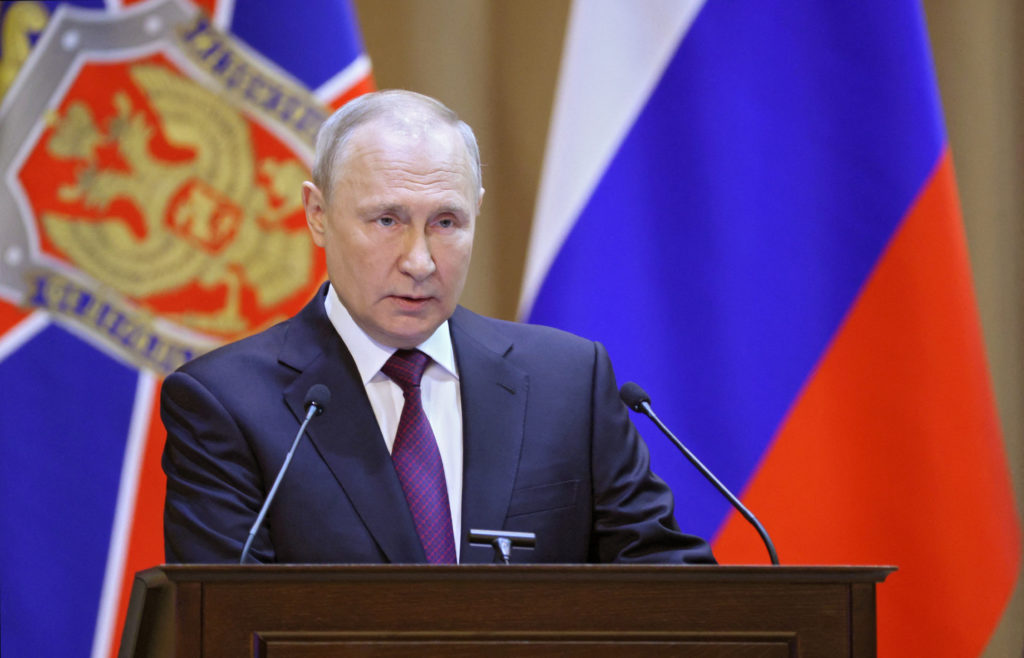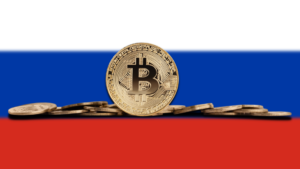Russia Prepares Draft Law to Allow Use of Cryptocurrency for International Trade Settlements

Russian President Vladimir Putin delivers a speech during a meeting of the Federal Security Service (FSB) collegium in Moscow, Russia, February 28, 2023. Sputnik/Gavriil Grigorov/Pool via REUTERS ATTENTION EDITORS - THIS IMAGE WAS PROVIDED BY A THIRD PARTY.
Russia is reportedly drafting a new law that would allow the use of cryptocurrency for international trade settlements, marking a significant shift in the country’s stance on the use of digital currencies.
The draft law, which has been submitted to the Russian parliament for consideration, would allow companies to use cryptocurrencies for settling international trade transactions, as well as for the purchase of goods and services from foreign entities. The move is seen as a way for Russia to bypass the U.S. dollar and other Western currencies, which have been subject to sanctions and restrictions in recent years.
The use of cryptocurrency for international trade settlements would also provide a level of anonymity and security for Russian companies, which have faced increasing scrutiny and pressure from Western governments in recent years. Cryptocurrency transactions are generally considered to be more difficult to track and trace than traditional financial transactions, which could make them a more attractive option for companies looking to avoid detection or sanctions.
However, the draft law also includes a number of provisions aimed at regulating the use of cryptocurrency, including the requirement for companies to report all cryptocurrency transactions to the Russian government and to comply with anti-money laundering and counter-terrorism financing regulations.
The move by Russia to embrace cryptocurrency for international trade settlements is part of a broader trend of countries and companies looking to explore the potential of digital currencies in global trade. Many see cryptocurrency as a way to reduce the costs and inefficiencies associated with traditional cross-border payments, while also providing a more secure and transparent means of conducting international transactions.
However, the use of cryptocurrency for international trade settlements also presents a number of challenges and risks, including the potential for increased volatility and the difficulty of reconciling different currencies and exchange rates. It will be important for countries and companies to carefully consider these issues as they explore the potential of digital currencies in global trade.
Overall, the move by Russia to draft a law allowing the use of cryptocurrency for international trade settlements is a significant development in the ongoing evolution of the cryptocurrency market. While it remains to be seen how the law will be implemented and what impact it will have on global trade, it is clear that digital currencies are increasingly being seen as a viable alternative to traditional financial systems and are likely to play a growing role in the global economy in the years to come.






